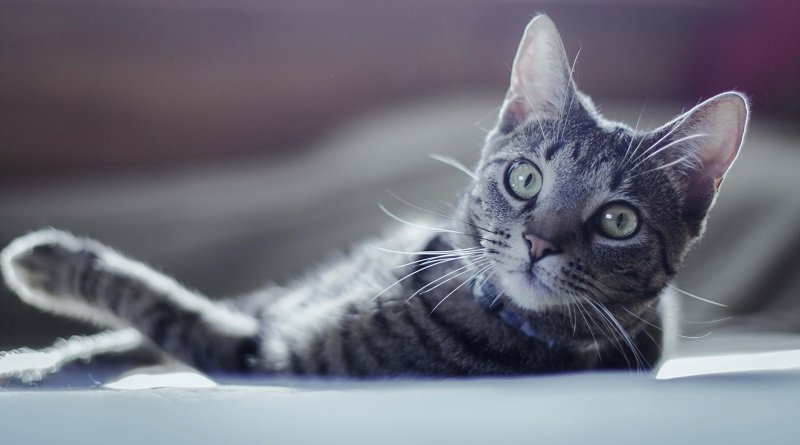Is Prescription Cat Food Worth It? Probably Not.
Last Updated on
Is prescription cat food worth it? After receiving dozens of emails from prescription food users, reading discussions about it, and researching the regulatory backing for prescription food claims, I’ve concluded that this veterinary office staple is usually not worth it.
In short, prescription cat food isn’t worth the money, the hassle, the often cheap ingredients, and the mental weight of suspecting that you’ve fallen for another fear-based marketing scheme.
You shouldn’t take your veterinarian’s word for it when she recommends an alphabetically-named bag of cat food and you shouldn’t take my word for it when I tell you that prescription food isn’t worth it.
Before we break down the problems with prescription cat food, let’s start off with a few statements from other people who are critical of it.
Dr. Lisa Pierson, DVM, says about prescription and therapeutic diets:
“These diets represent an area of the commercial cat food industry that is very misleading and, quite frankly, a source of embarrassment for this profession.”
In early 2019, a customer sued Hill’s Pet Nutrition accusing them of violating the Kansas Restraint of Trade Act and the Kansas Consumer Protection Act.
Reeling from the thousands of dollars she’d spent on Hill’s prescription foods, the plaintiff argued that the company’s use of the term “prescription diet” and the Rx prescription symbol was “false, misleading and contrary to law”.
There are three big problems with prescription cat food.
- People assume that because a food is called a prescription diet or veterinary diet, it’s passed some rigorous testing and the label has been validated by a third party organization. Not so.
- While some prescription foods offer therapeutic benefits unmatched by ordinary foods—think Hill’s y/d hyperthyroid diet—others don’t. A prescription diet is not guaranteed to help your cat or even do anything that an ordinary food wouldn’t.
- Prescription cat food is expensive, but usually contains cheapskate ingredients like animal and plant by-products.
Let’s go into a little more depth on why prescription food isn’t worth it.
The “prescription diet” or “veterinary diet” label is not overseen by any regulatory agency.
I know. That’s hard to believe. The FDA won’t let an apple seller say that an “apple a day keeps the doctors away”. How could pet food manufacturers get away with calling their food a prescription diet?
The answer is, ultimately, that the FDA doesn’t see pet food as being equal to human food and the same standards and stringency don’t cross over to this industry.
Pet food companies argue that while there’s nothing in the foods that actually require a prescription, they make claims that would be misleading to consumers unless they talked to a veterinarian first. They cite this excerpt from an FDA compliance guide:
“When these products are marketed directly to pet owners, there is a greater potential for product misuse and/or misunderstanding of the role of the product in the disease treatment,” the guidelines state. “For example, owners of diabetic dogs and cats may misinterpret claims to ‘control blood glucose’ to represent that the product is the sole treatment required for diabetic dogs and cats when, in fact, these animals may require insulin therapy or other treatments to adequately control blood glucose.”
Later, these guidelines spell it out clearly. They say that prescription pet foods “have not been evaluated by the FDA for safety, efficacy, or nutritional adequacy.”
So who is deciding whether or not it’s okay to put an Rx label on cat food and demand a vet’s approval before customers can buy it?
Three groups of people make that decision—pet food companies, veterinarians, and the customers who accept them.
How Pet Food Companies, Veterinarians, and Consumers Perpetuate the Myth of Prescription Cat Food
I think we have a tendency to feel that there’s something special about prescription food, even if every other indicator points to it being no different from any other food. Let’s bring prescription food down to size by talking about what it is and why it gets such unquestioning respect.
Pet Food Companies – The History of Prescription Pet Food
In the 1930s, Dr. Mark L. Morris was asked to create a special diet for a dog with kidney disease. Morris Frank, the founder of The Seeing Eye, America’s first guide-dog school, contacted the veterinarian after learning that his guide dog’s kidneys weren’t working the way they should.
Dr. Morris formulated the first canine renal food in his kitchen and started shipping it to Mr. Frank, who was traveling the United States promoting guide dog training and accessibility for blind people and their service animals. This kidney diet, made in Dr. Morris’ kitchen and shipped across the country in glass jars, was called Raritan Ration B.
It’s unclear whether or not Raritan Ration B helped Buddy. She died in 1938 and I wasn’t able to find any information on the formulation or Morris Frank’s side of the story. We do know that the doctor went into business with Hill’s Pet Nutrition and Raritan Ration B evolved into Hills Prescription Diet k/d Canine, which was available for sale by the late 1940s. That diet, by the way, appears to work. In one 2002 study, dogs who ate Hill’s Prescription Diet k/d lived twice as long and had a 50% reduction in CKD symptoms compared to dogs eating a traditional diet.
Eventually, Hill’s patented the name “Prescription Diet”. Other companies use the terms “veterinary diet” and “therapeutic food” in a similar way.
Veterinarians – A Mutually Beneficial Relationship
The makers of prescription foods have forged a unique relationship with veterinarians. Their foods are sold primarily in veterinarian’s offices or, if not in the vet’s office, with a vet’s prescription.
Companies like Hill’s Pet Nutrition and Royal Canin have made a concerted effort to be known by veterinarians. They produce educational materials for vets, sponsor continuing education events, and host workshops at veterinary colleges. It’s not some underhanded conspiracy—this is a legitimate marketing technique and not without justification.
These companies have robust research facilities and hire veterinary nutritionists, researchers, and veterinarians. Their research and development departments are well-staffed, well-funded, and make valuable discoveries about animal nutrition.
Yet when it comes to the specific foods, vets seem to rely more on brand loyalty than product-specific research.
Click here to view a module on kidney disease from the Hill’s Veterinary Nutritional Advocate (VNA) program. This is a free educational program designed to help veterinarians to better communicate about animal nutrition and the benefits of Hill’s Pet Nutrition products.
In other parts of this program, students are taught how to communicate with their clients and about the advantages of merchandising. Though the guide explains in layman’s terms how prescription foods work, they present very little clinical data and real evidence that Hill’s foods provide the benefits they claim. Despite this dearth of data, it’s up to the veterinarian to decide whether or not those claims are true.
The bottom line? You need to ask your veterinarian for proof that the products they’re recommending are effective.
Customers – Fear and High-Pressure Sales
Fear is the biggest difference between prescription cat food and normal cat food.
I know of one cat who had been on prescription food for years. She was nine years old with horrible skin, a ragged coat, and the figure of a hibernating bear. Obviously, the prescription food was not doing her any favors.
Yet her humans were terrified to switch her diet because they were afraid that eating something other than the prescription kibble would make “her stomach explode”.
Fear is the enemy of reason. We’ll buy so many things when we’re scared, especially if someone in authority says it’s a good idea.
To put this into perspective, it’s as if Kraft had the patent on the name “Healthy Diet” and slapped it on boxes of Kraft mac n’ cheese. You have high blood pressure, but you don’t really know what that means other than that you’re probably going to die soon. Your doctor, on the other hand, seems to know what it means and she said you should try this stuff called Kraft Healthy Diet for Heart Health. If you can only get it from the doctor, it must be good, right?
Conversations in the doctor’s office would look like this:
“What makes h/h different from any other macaroni and cheese?”
“Well, it’s a prescription food. It’s good for your heart!”
“No, really. What’s different about it? And is macaroni and cheese even good for your heart?”
“It’s not macaroni and cheese. It’s Kraft Healthy Diet h/h.”
“Can you just tell me what makes it different? I’ve been reading about this a lot lately, and honestly, Dr. Sharon, I’m starting to wonder if I’m not paying $10 a box of ordinary mac n’ cheese I could buy at the grocery!”
“You might not like the ingredients, but these foods save lives. And whoa there, Julie, have you been reading the internet? Next time you have a question, come to me, m’kay? Now, take this brochure. It explains everything.”
Note: The brochure did not explain everything.
Then you’re driving home from the doctor’s office with a big case of Kraft Healthy Diet Mac n’ Cheese for Heart Health in the passenger seat.
Considering that there are articles like this one and endless, heated discussions about the merits of prescription cat food, it’s truly as if we were hand-wringing over the difference between Kraft Healthy Diet h/h and Annie’s Mac n’ Cheese. We can already see what’s in the food. We already know that in so many cases, it doesn’t help our cats. Yet we continue to feel that we must be wrong because an authority figure says this could save our cat’s life.
So prescription foods are a little bit bogus, but do they work?
The answer to this question is “sometimes”.
Prescription and veterinary foods usually have “alphabet” names like c/d or i/d or SO, making them a no-brainer choice for busy veterinarians. Some of these foods are good options for cats with health issues, but many run nutritionally counter to the very conditions they’re supposed to help.
A few examples of this irony:
- Most vet-recommended brands offer dry cat food for urinary tract health, despite the fact that low-moisture food appears to be the biggest dietary cause of urinary tract disease.
- Most prescription diets are expensive, yet they contain cheap, usually feed-grade ingredients like animal by-products and corn gluten meal.
- Some prescription foods for diabetic cats have carbohydrate content exceeding twenty-five percent. Compare that to the recommended carbohydrate content of 10% or less for diabetic cats.
- Most dental diets are loaded with carbohydrates, which create a starchy film on the teeth and contribute to plaque buildup.
Which prescription cat foods DO work?
This question is hard to answer because it really comes down to your individual cat and his health conditions.
Generally speaking, prescription foods are best-suited to situations in which your cat has a serious illness and normal food is no longer a good option. Conditions that likely demand a prescription food include kidney disease, hyperthyroidism, and sometimes, severe malnutrition.
In most cases, you do not need to give your cat a prescription food for IBD, pancreatitis, allergies, or other situations in which normal food is still an option.
Ultimately, it comes down to just two words:
QUESTION EVERYTHING.
You are smart enough to make this decision as long as you can set aside your biases and do your best to think critically. Not all prescription foods are bad. Not all “big brands” are bad. Not everything your veterinarian says is true. Not everything you read on the internet is true. But the truth is always there.
Until you choose to think critically and evaluate all sides of the situation, you’ll be at the mercy of someone else’s possibly flawed ideas—whether that’s a blogger or your veterinarian.
Prescription cat food is not sacred and you don’t have to buy it if you don’t want to. I know vet visits are stressful and that it can be hard to turn down a veterinarian’s recommendation. Vets can be persuasive and they might even make you feel like an idiot for asking questions. I recently read about a veterinarian who carried a bag of Hill’s food out to their unwilling client’s car.
But you don’t have to accept anything you’re not ready to accept. Anytime you feel pressured to buy something or do something and you start thinking you have to say “yes”, do NOT say yes!
Instead, say “I need a couple of days to think about it.”
Fortunately, prescription cat food isn’t a medicinal product. Unlike a legitimate prescription drug or treatment, missing a few days—and in most cases, a lifetime—of prescription food won’t do your cat any harm.








